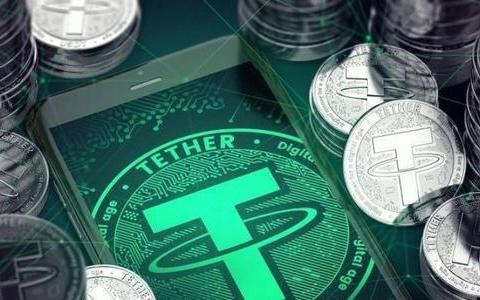|
|
Okay, so I need to figure out what Accenture Tokenized Stock is. Let me start by breaking down the terms. Accenture is a well-known consulting and technology company. Tokenized stock, on the other hand, I remember hearing about in the context of blockchain and cryptocurrencies. Tokenization usually means converting assets into digital tokens on a blockchain, right? So maybe Accenture is offering their stock in a tokenized form.
First, I should check if Accenture has actually done something like this. Maybe they have a partnership or launched a project related to tokenization. I recall that some companies are exploring tokenization to make their shares more accessible or to enable secondary trading. But how does that work exactly? Instead of holding physical shares or traditional shares on a stock exchange, you hold tokens that represent ownership.
I should consider the benefits. Tokenization can increase liquidity because tokens can be traded more freely, maybe even 24/7 on decentralized exchanges. It might also reduce摩擦 because blockchain can make transfers faster and cheaper. There's also the potential for global accessibility, allowing investors from anywhere to participate.
But there are risks too. Regulatory issues come to mind. Tokenizing stock might have different legal implications. Companies like Accenture are in the tech sector, so they might be early adopters of blockchain tech. Maybe they're part of a pilot project or initiative with a blockchain startup.
Wait, I should verify if Accenture actually has tokenized their stock. Let me think. I haven't heard of Accenture doing this publicly. Maybe the user is referring to a hypothetical scenario or a misunderstanding. Alternatively, maybe Accenture is involved in tokenization services for others. For example, they could be helping other companies tokenize their stock, but that's different from tokenizing their own.
Another angle: sometimes companies tokenize assets for employee compensation. Maybe Accenture offers tokens as part of employee stock options. That's a possibility. But again, I need to confirm.
I should also think about the technology involved. Tokenization typically uses smart contracts to represent ownership. The tokens would be on a blockchain, maybe Ethereum, Binance Smart Chain, or another platform. Regulatory compliance is a big factor here. SEC regulations in the US, for instance, require that securities are traded through registered exchanges and follow specific rules.
If Accenture did tokenize their stock, they'd need to navigate these regulations. Maybe they're using a security token offering (STO) framework. STOs are a type of tokenized security that complies with securities laws. However, I don't recall Accenture announcing an STO. Maybe it's a theoretical question.
Alternatively, the user might be confused with another company. For example, companies like Tesla or Apple have discussed blockchain, but not necessarily tokenized stock. Or maybe it's a startup in the Accenture ecosystem.
In summary, to answer accurately, I need to confirm if Accenture has tokenized their stock. If not, explain the concept and how it could apply to them. Also, discuss potential benefits, risks, and regulatory considerations. If there's no public information, state that and provide a general explanation of tokenized stock in the context of a company like Accenture.
Accenture Tokenized Stock refers to the concept of converting Accenture's traditional shares into digital tokens on a blockchain platform, enabling ownership through blockchain technology. While Accenture has not publicly announced tokenizing its own stock, the idea is rooted in broader trends in fintech and blockchain. Here's a structured breakdown:
Key Concepts:

Tokenization of Assets:
Converting physical or traditional financial assets (like stocks) into digital tokens on a blockchain. These tokens represent ownership rights and can be traded more flexibly.
Potential Benefits:
Liquidity: Tokens could be traded 24/7 on decentralized exchanges, enhancing market流动性.
Cost Efficiency: Lower transaction costs and faster settlements via smart contracts.
Global Accessibility: Investors worldwide could participate without geographical restrictions.
Employee Compensation: Tokenized shares might simplify employee stock options or equity rewards.
Regulatory Considerations:
Compliance: Tokenizing stock would likely require adherence to securities regulations (e.g., SEC in the U.S., MiFID II in the EU). Security Token Offerings (STOs) are a regulated framework for this.
Licensing: Accenture would need partnerships with licensed intermediaries to ensure compliance.
Technology:
Blockchain Platforms: Ethereum, Binance Smart Chain, or Solana are common platforms for tokenization.
Smart Contracts: Automate ownership transfers and compliance checks.
Current Status of Accenture:
No Public Announcements: As of now, Accenture has not tokenized its stock. It is a tech consulting firm, not a public company, so its shares aren't traded on exchanges. However, Accenture might assist other companies in tokenization strategies through its consulting services.
Risks and Challenges:
Market Volatility: Cryptocurrencies are inherently volatile, which could affect tokenized stock value.
Regulatory Hurdles: Navigating global securities laws could be complex and costly.
Adoption Barriers: Investors may be hesitant to adopt tokenized securities without regulatory clarity.
Conclusion:
While Accenture Tokenized Stock is a theoretical possibility aligned with fintech trends, there is no evidence of Accenture pursuing this. The concept highlights the potential of blockchain to modernize traditional finance but requires significant regulatory and operational adjustments. For now, Accenture remains a conventional firm, though it may leverage tokenization expertise for clients. Investors should stay informed about regulatory developments and corporate announcements for future updates.
|
|